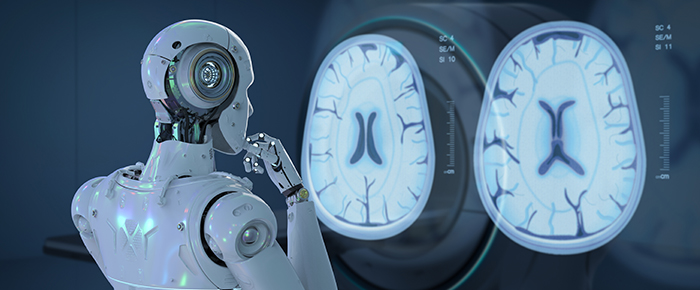
.1. AI Unlocks New Frontiers in Medical Diagnosis.1. AI Unlocks New Frontiers in Medical Diagnosis Artificial Intelligence (AI) has revolutionized various industries, and healthcare is no exception. AI-powered diagnostic tools have emerged, unlocking unprecedented possibilities in medical diagnosis. Precise and Efficient Diagnosis: AI algorithms can analyze vast amounts of medical data, including images, electronic health records, and lab results, with remarkable accuracy. This capability enables doctors to make precise diagnoses, even in complex or ambiguous cases. AI-powered systems flag potential abnormalities and provide insights that might be missed by the human eye. Early Detection and Prognosis: AI can identify subtle patterns and relationships in data that are difficult for humans to detect. This early detection capability allows for timely intervention and improves the chances of successful treatment. AI systems can predict disease risk and prognosis, providing valuable guidance for personalized healthcare plans. Automated Analysis: AI-powered tools automate repetitive and time-consuming tasks, such as image analysis and data interpretation. This frees up healthcare professionals to focus on patient care, reduces diagnostic turnaround time, and improves workflow efficiency. Advancements in Radiology: AI has made significant strides in radiology, enabling faster and more precise diagnosis of medical images. Algorithms can analyze CT scans, MRIs, and X-rays to detect subtle abnormalities that may indicate diseases such as cancer, heart disease, and stroke. Customizable and Collaborative: AI diagnostic systems are often customizable to specific medical specialties and workflows. They can be integrated into electronic health records, providing seamless access to patient data and diagnostic insights. Additionally, AI algorithms facilitate collaboration among healthcare professionals, allowing them to share and discuss complex cases remotely. Challenges and Considerations: While AI offers immense potential, it is important to acknowledge the challenges and ethical considerations involved. Data privacy, algorithm transparency, and the need for ongoing validation and updates must be addressed to ensure the responsible use of AI in medical diagnosis. Conclusion: AI has unlocked new frontiers in medical diagnosis by providing precise, efficient, and automated tools. Its ability to analyze vast amounts of data, detect subtle patterns, and predict disease risk has revolutionized the healthcare landscape. As AI continues to evolve, it holds the promise of further advancements in disease diagnosis and improved patient outcomes.
Posted inNews